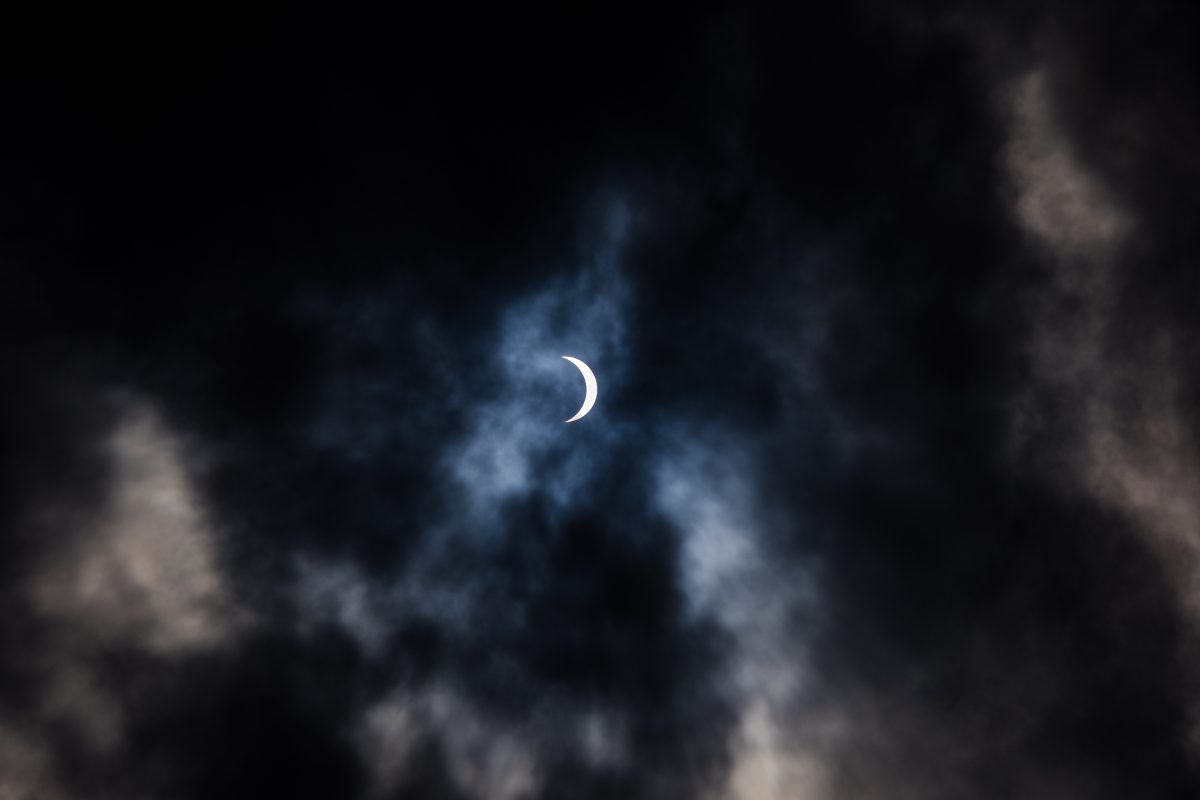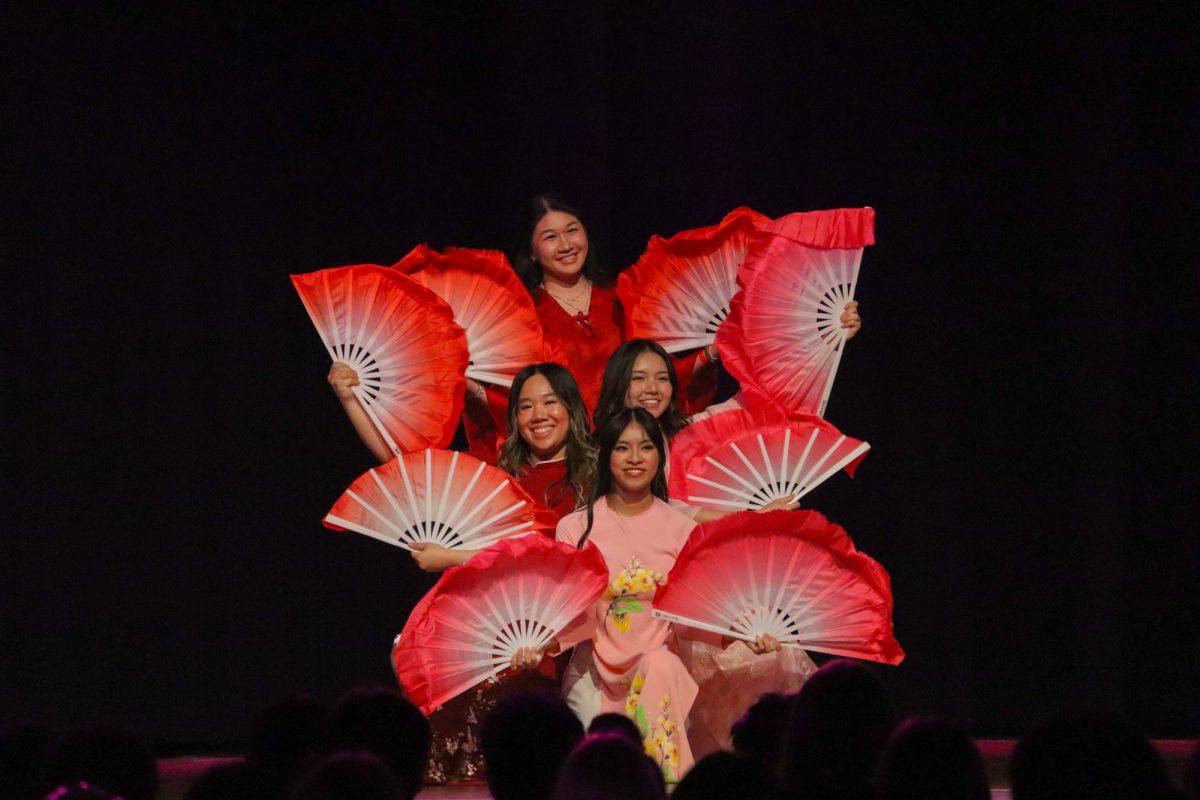The lawn in front of Parks Library was packed with hundreds of students Monday afternoon. Many sat on towels and blankets while looking at the sky, patiently waiting for something to happen. For the first time since 2017, shortly after 12:45, cheers and applause broke out across parts of the grounds as the total solar eclipse began.
“The last time I saw an eclipse, it was in seventh grade,” said Avery Ostboe, a freshman studying mechanical engineering. “I live in Texas, so here it’s going to be more than it was in 2017, so I feel like it’s gonna look much cooler.”
In ancient times, an event like the eclipse would have been a great cause for concern, according to NASA. But in 2024, it served as a unique opportunity to build community, as strangers shared blankets and glasses, as well as the excitement of watching such a remarkable occurrence unfold before their eyes.
Some students seemed to take inspiration from Bonnie Tyler’s “Total Eclipse of the Heart,” as they used the opportunity to cuddle on the lawn with their significant other as they watched the eclipse.
“I’ve never seen [an eclipse] before,” said Caleb Severson, a senior studying mechanical engineering. “The last one was like eight years ago or so … I was too young back then to really understand what it was. But this is pretty cool … I’m just really excited to see what all the hype’s about.”
Severson revealed that he was also tempted to skip his next class to observe the solar eclipse, and he was far from alone. At least three other students in the vicinity also expressed that they were missing class to observe the solar phenomenon.
Even though the eclipse only provided Ames with about 85% coverage, the excitement was palpable when it looked like the moon entirely covered the sun, if only for a few moments. Cheers, as well as some expletives, erupted all over the lawn as people hurriedly reached for their glasses or eagerly nudged the friend next to them.
It wasn’t just students partaking in the eclipse viewing. Some families had small setups on the ground, bringing small children or pets with them. Others brought telescopes and other devices to get an even better view of the eclipse.
Monica Gillen, a communications specialist at Parks Library, was out on the lawn with the students and taking pictures of the crowd that had gathered.
“Back in 2017, one of my colleagues got a fantastic picture from this vantage point, of hundreds of people looking up at the eclipse,” Gillen said. “So, [I’m] looking for something like that as well today. Obviously it doesn’t happen very often, and so I’m glad to see students taking advantage of the lovely weather to watch the eclipse.”
Employees of Parks Library, in addition to several other nearby buildings, were handing out free protective glasses to hundreds of students so that they could participate in observing the eclipse safely.
The next total eclipse on the North American continent will occur in 21 years on August 12, 2045, though people might have to travel to see it as it will mainly pass over the south/southwestern United States. In the meantime, students and staff alike will have the memories of this eclipse to sustain them for years to come.








